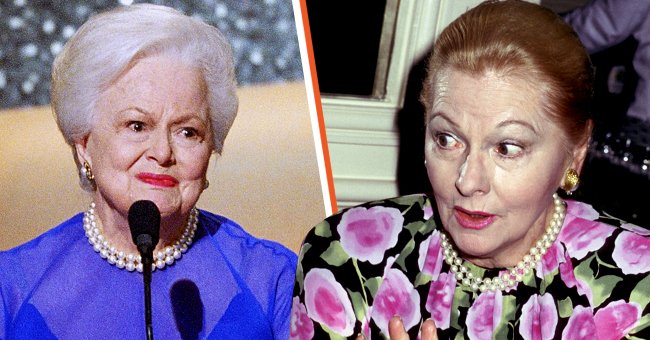
Joan Fontaine Wanted to Congratulate Olivia De Havilland With Oscar but She Turned Away
Also known as the “Feuding sisters,” Joan Fontaine and Olivia De Havilland were brilliant actresses, but they never got along well. From childhood until their last days, rivalry prevailed throughout most of their relationship.
Olivia de Havilland and Joan Fontaine were similar in physical appearance and many aspects of their lives. Despite the endless rivalry, the sisters chose the same career path, and sometimes even the same man!
The legendary Oscar-winner sisters lived in a “cold-war” kind of energy for decades, and even when their mother died, they haven’t spoken to each other in her memorial.
![[Left]: Former Best Actress Oscar winner Olivia de Havilland during the 75th Annual Academy Awards at the Kodak Theater on March 23, 2003 in Hollywood, California. [Right]: Joan Fontaine during 48th Golden Apple Awards at Beverly Wilshire Hotel in Beverly Hills, California, United States. | Source: Getty Images](https://cdn.amomama.com/fa5a5ec75d0f0dde4cb027d6fd7fbc14.jpg)
[Left]: Former Best Actress Oscar winner Olivia de Havilland during the 75th Annual Academy Awards at the Kodak Theater on March 23, 2003 in Hollywood, California. [Right]: Joan Fontaine during 48th Golden Apple Awards at Beverly Wilshire Hotel in Beverly Hills, California, United States. | Source: Getty Images
THE FEUDING SISTERS
Joan and Olivia have just 15 months in age difference. Olivia is the oldest and according to Joan’s memoir, “No Bed of Roses,” the younger sibling wrote that her sister was jealous of her.
Olivia wasn’t happy to share her parents’ attention with the newborn, so she would pick on Joan when she was still a baby. The rivalry sprung up from there and continued their whole lives.
In response, Olivia said that the beginning of the lifetime feud was because they had to share the same bedroom. But what one would call a “regular sibling fight” often escalated to a physical altercation.
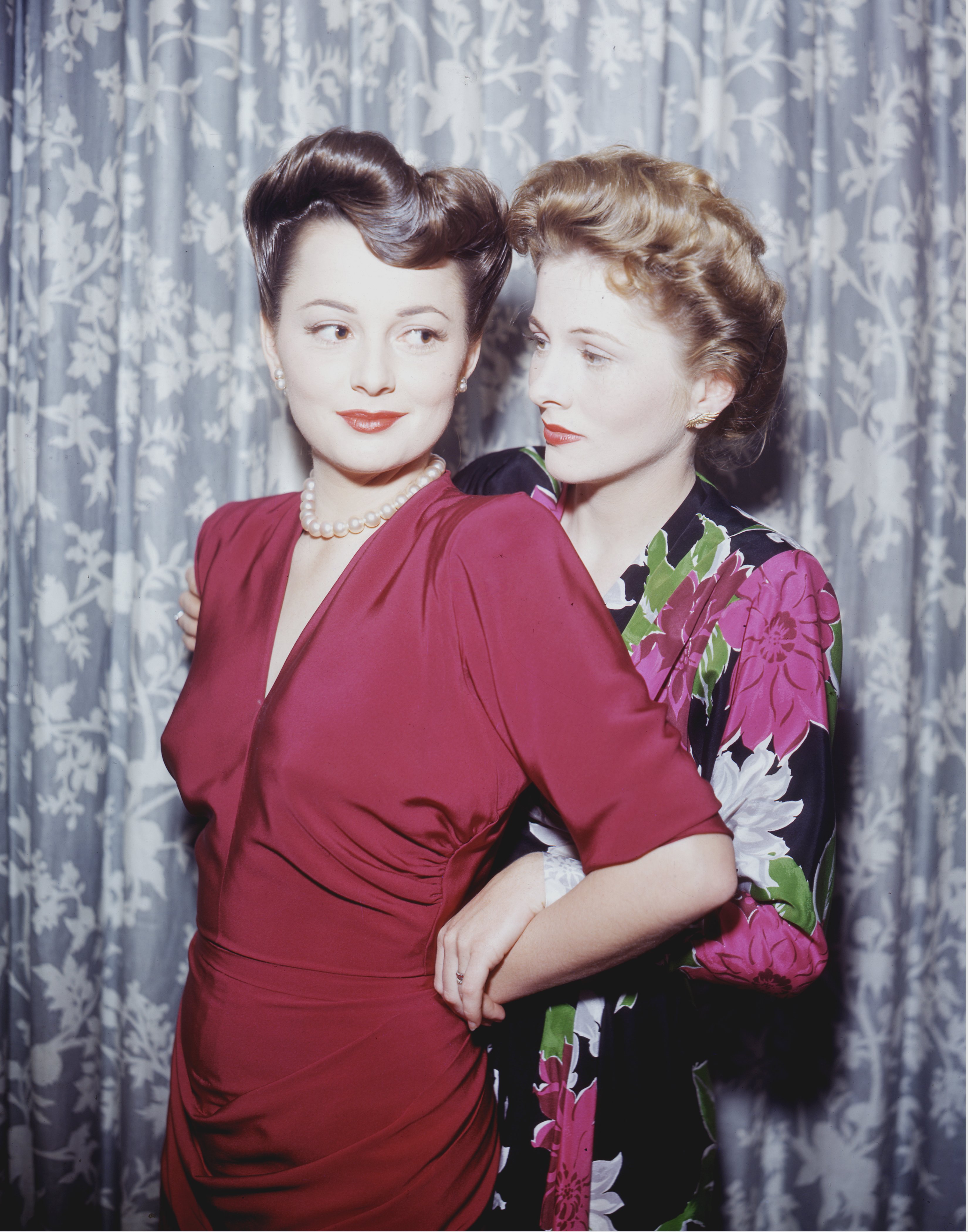
Actress Olivia de Havilland (left) with her sister, actress Joan Fontaine, circa 1945. | Source: Getty Images
The feuds turned into hair-pulling, slaps, outright fighting, and constant bullying as the sisters entered adolescence. In Joan’s 1978 book, she shared an argument between the two that ended up in the hospital.
Joan was in the swimming pool and tried to pull Olivia in by the ankle, but her sister resisted, causing Joan to fracture her collarbone. When they got older, the abuse transitioned from physical to psychological.
THE FAMILY ENVIRONMENT
The environment we live in makes a difference. The Havilland’s atmosphere wasn’t the healthiest, which played a part in the sisters’ dysfunctional relationship. The girls were born in Britain and moved around until they landed in the US.
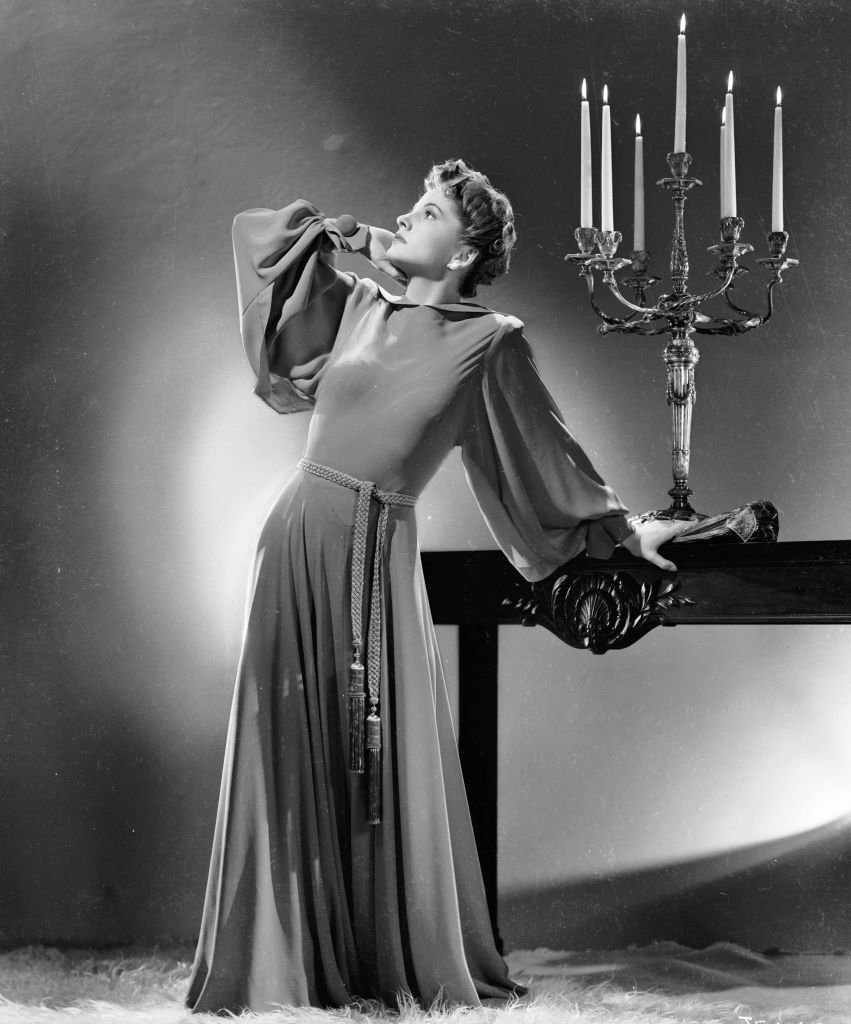
British-born actress Joan Fontaine strikes a theatrical pose in a floor-length belted gown circa 1941. | Source: Getty Images
According to Joan, their mother was a perfectionist actor, distant, and not a nurturing figure. She remarried the disciplinarian George Fontaine who installed a military regimen at their home. The sisters were punished if they misbehaved.
George Fontaine would force them to drink cod liver oil to induce vomiting. Alternatively, he’d choose to beat them with a wooden hanger, leaving the girls covered with bruises.
THE SISTERS GO TO HOLLYWOOD
Mrs. De Havilland wanted to keep her British roots and forced the girls to sound British. The perfect elocution eventually paid off. Olivia, who was a star at the school theater, was discovered by an impresario. He cast her to star “A Midsummer Night’s Dream” as the heroin Hermia.
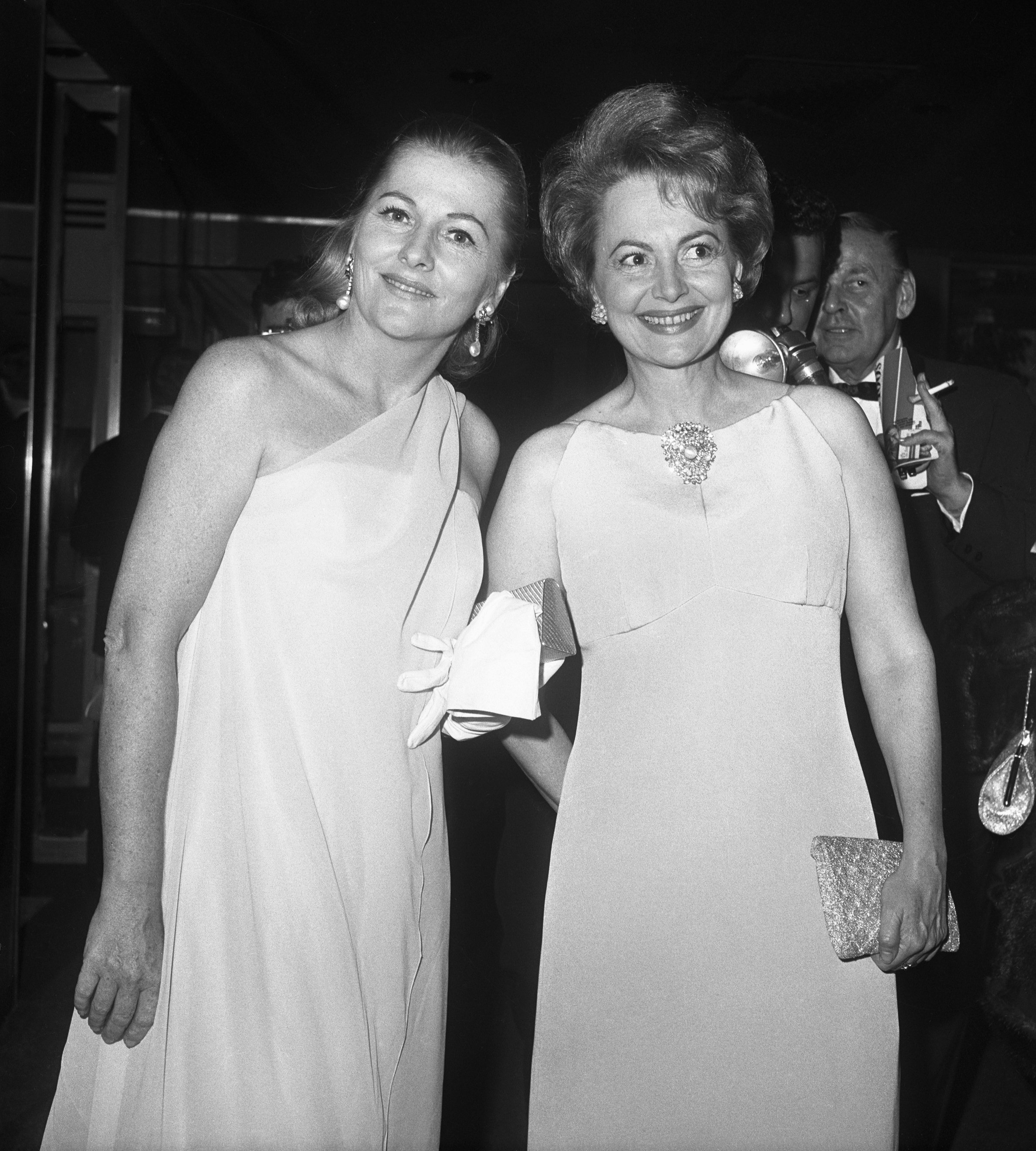
Olivia de Havilland and sister Joan Fontaine during Marlene Dietrich's Opening Party - September 9, 1967 at Rainbow Room in New York City. | Source: Getty Images
While Olivia opted for the acting path, her sister Joan went to Japan to spend a few years with her stepfather. She found her sister starring in the Warner Bros screen adaptation of Shakespeare’s play when she returned.
Joan went to see her older sibling playing Hermia on the opening night. Still, Olivia later recalled she couldn’t recognize her younger sister anymore — she was smoking and had bleached her hair.
Joan moved in with her sister and mother and played chauffeur to her sister. One night, when she was waiting to pick up Olivia, she was approached by a Warner Bros employee who said she should be in films.
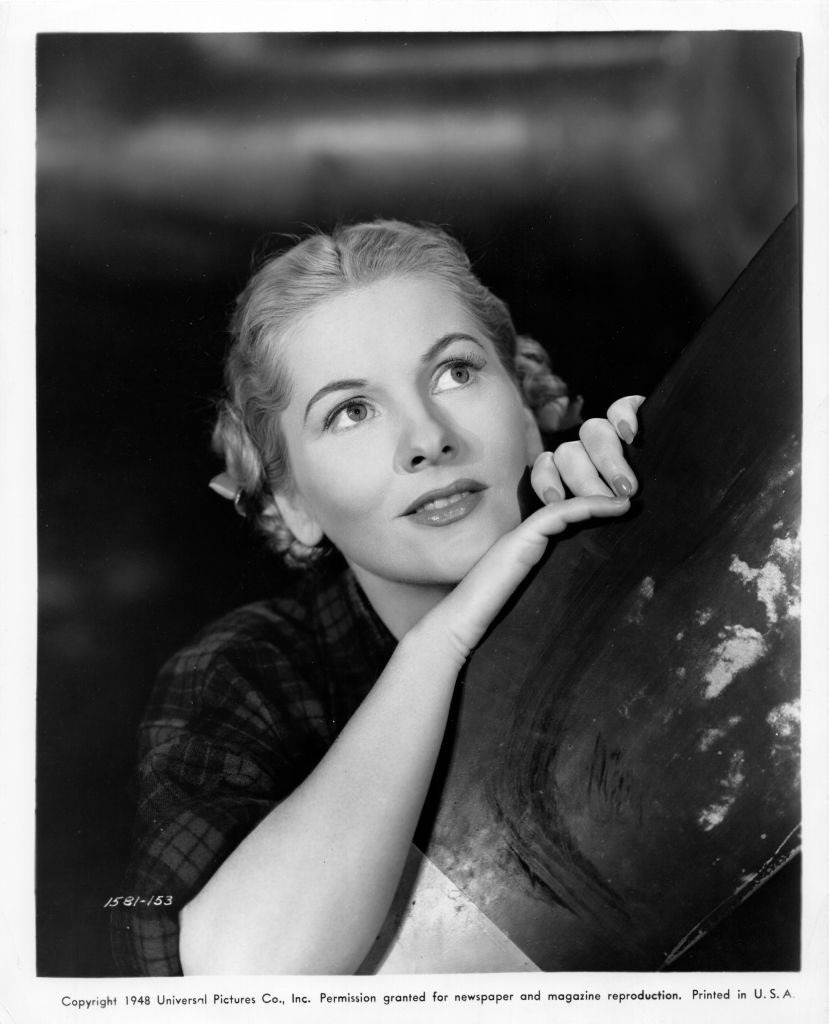
Joan Fontaine (1917-2013) as 'Dee Dee Dillwood' in a publicity shot from the movie "You Gotta Stay Happy," 1948, United States. | Source: Getty Images
She told her mother about the case, and Mrs. De Havilland said that Warner Bros was “Olivia’s studio.” Joan was forced to change her name, as Olivia thought there was space for only one De Havilland:
“Two de Havillands on the marquee would be too many, so I had to leave Olivia’s distinguished name for her, and I took my stepfather’s name.”
Joan didn’t like the idea and didn’t want to accept it. But she went to a fortune-teller who convinced Joan otherwise. The psychic told her that the stepfather’s “Fontaine” surname was a successful name.
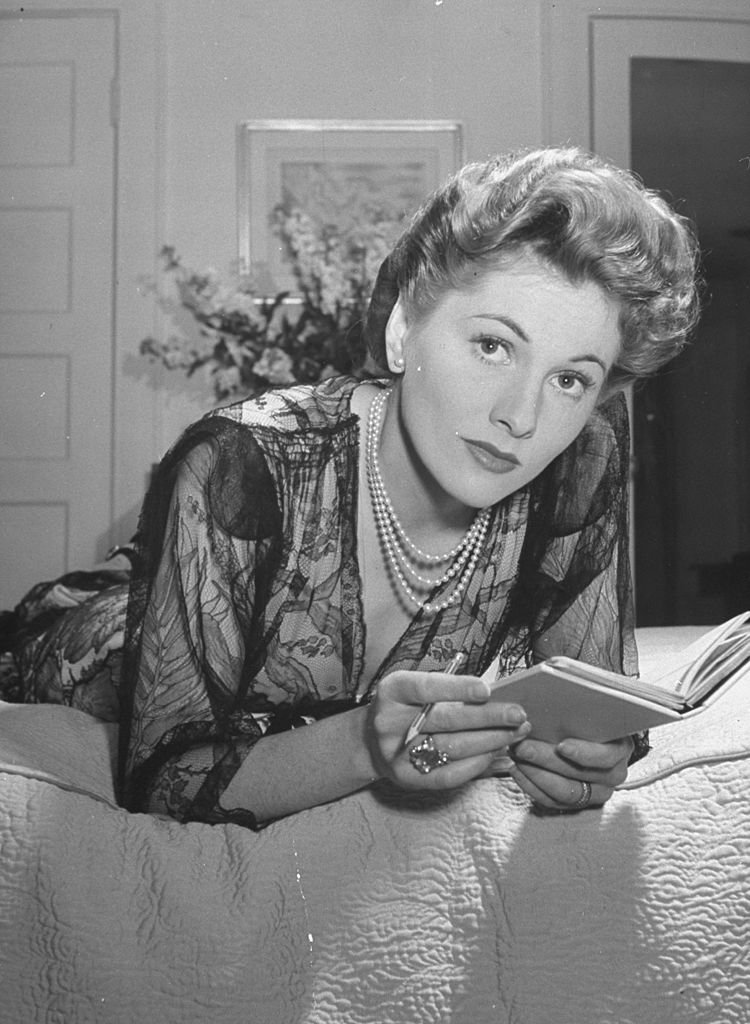
Actress Joan Fontaine wearing sheer negligee while lounging on bed at home. | Source: Getty Images
Soon, Joan got an agent and signed a contract at RKO. She made her debut on the silver screens with “Damsels in Distress” (1937) and “Gunga Din” (1939).
Olivia’s contract with the Warner Brothers brought her to stardom with the films “Captain Blood” (1935) and “The Adventures of Robin Hood” (1938). The actress called attention in Hollywood with her performance — especially someone, in particular, MGM film producer David O. Selznick.
As the story goes, Selznick invited Olivia to play Melanie in “Gone with the Wind.” However, Jack Warner didn’t like the idea of loaning his star out to another picture and declined until Olivia met with Mrs. Warner and convinced her to talk her husband out of his idea.
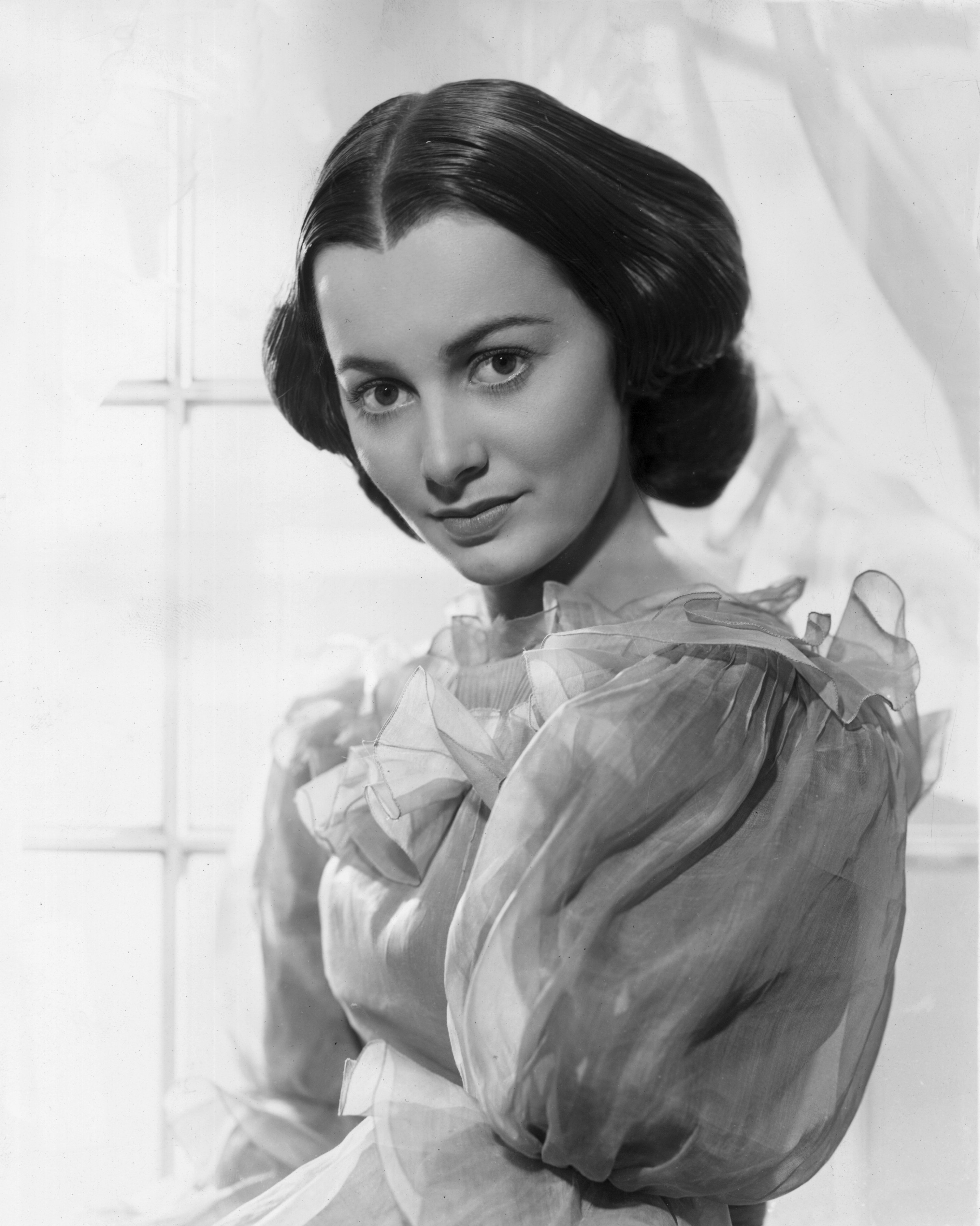
circa 1939: Olivia de Havilland, standing in front of a window in a promotional portrait for 'Gone With The Wind'. | Source: Getty Images
And the rest is history. “Gone with the Wind” was one of the most important roles in Olivia’s career and brought her the first Academy Award nomination.
And Joan was also on her way to building a brilliant acting career. Selznick invited Olivia for another movie, Hitchcock’s “Rebecca.” Jack Warner declined again, so Selznick requested Joan instead. The role led her to an Oscar nomination for Best Actress.
The following year, the sisters’ rivalry made it to the Academy Award night. Joan and Olivia were both nominated for Best Actress: Olivia for “Hold Back the Dawn” and Joan for another Hitchcock film, “Suspicion.”
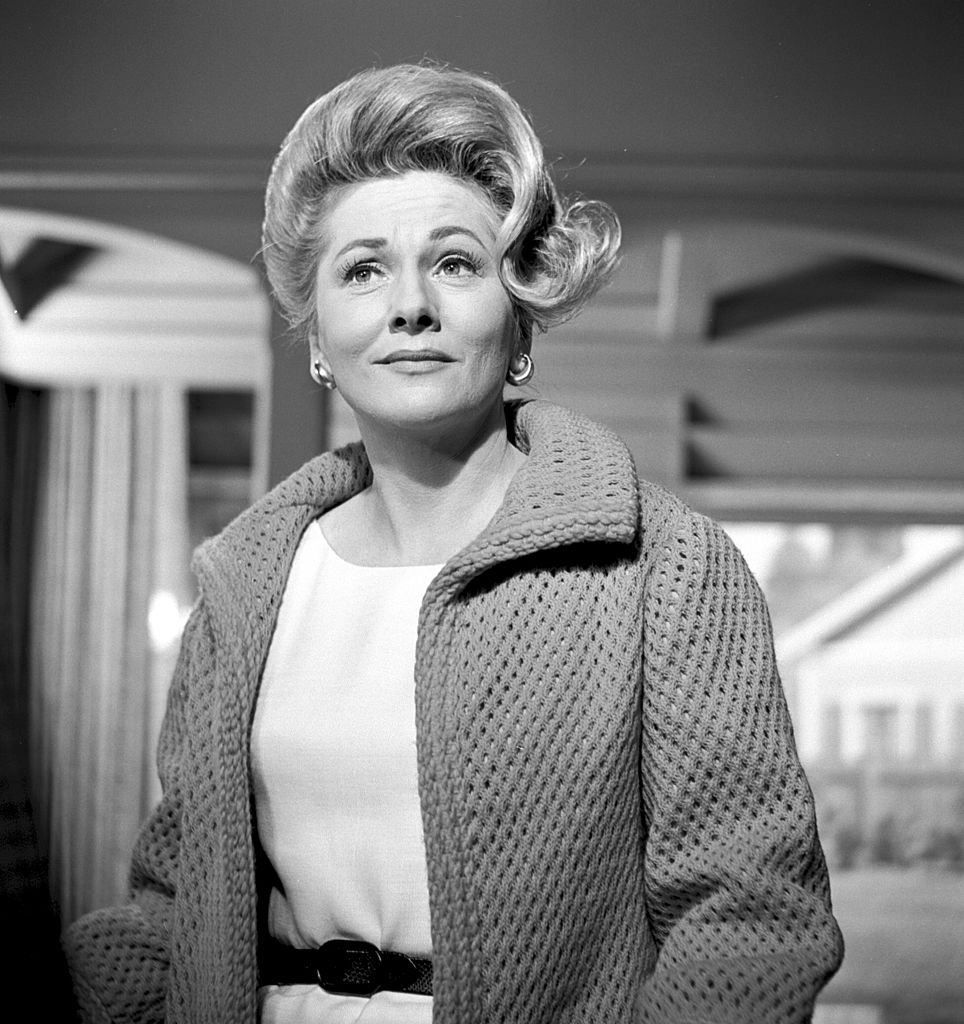
Joan Fontaine in "Salt of the Earth" in 1963. | Source: Getty Images
Olivia was expected to win, but Joan took the Oscar home that night against her expectations. About that evening in which Joan beat her sister, she shared in her memoir:
“Now, what had I done? All the animus we’d felt toward each other as children, the hair-pullings, the savage wrestling watches,[...], all came rushing back in kaleidoscopic imagery. My paralysis was total.”
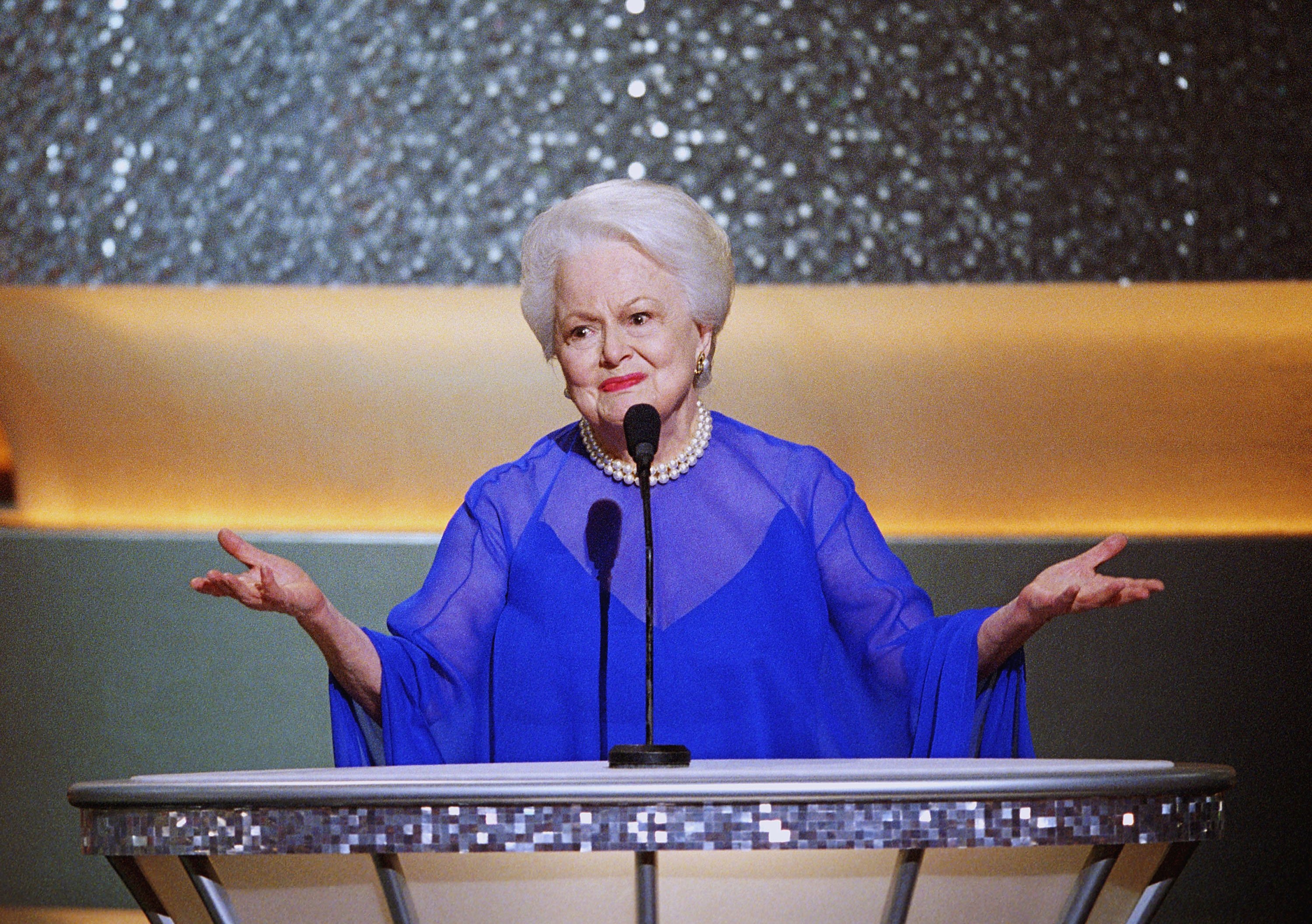
Former Best Actress Oscar winner Olivia de Havilland (To Each His Own, 1946) introduces other former winners in acting categories for a group presentation during the 75th Annual Academy Awards at the Kodak Theater on March 23, 2003 in Hollywood, California. | Source: Getty Images
In 1947, four years after that night, it was Olivia’s turn to take home the best actor prize for her performance in “To Each His Own.” Joan went backstage to congratulate her sister, but Olivia turned away from her; she later wrote:
“I went over to congratulate her as I would have done to any winner. She took one look at me, ignored my hand, clutched her Oscar, and wheeled away.”
The sister’s estrangement continued for years on, even when their mother died. They haven’t spoken to each other at their mother’s memorial, and Joan got notified about her mother’s death two weeks after she passed away. The estrangement was over when Joan died in 2013.
news.AmoMama.com does not support or promote any kind of violence, self-harm, or abusive behavior. We raise awareness about these issues to help potential victims seek professional counseling and prevent anyone from getting hurt. news.AmoMama.com speaks out against the above mentioned and news.AmoMama.com advocates for a healthy discussion about the instances of violence, abuse, sexual misconduct, animal cruelty, abuse etc. that benefits the victims. We also encourage everyone to report any crime incident they witness as soon as possible.
